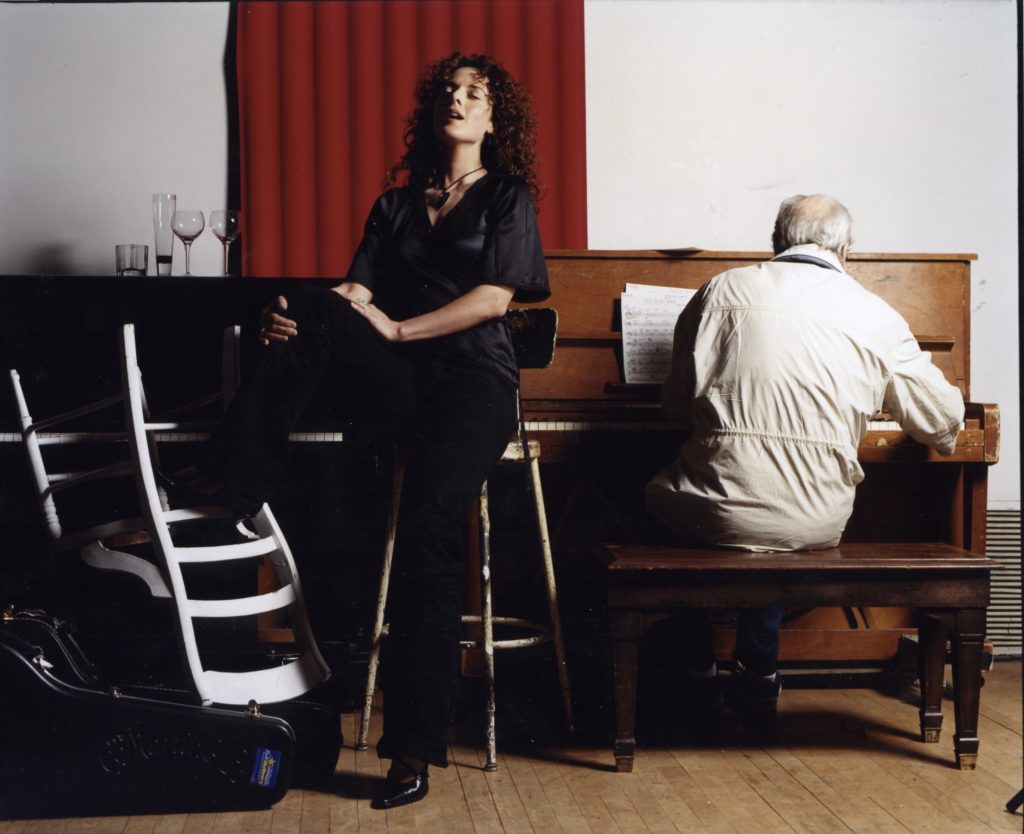
By Melissa Errico
Standing behind a large movie screen this summer, I watched The Thomas Crown Affair in reverse. I was the curator of The Summer of Michel Legrand, a film festival at the French Institute Alliance Française (FIAF) in New York City devoted to the great French film composer. I made welcome speeches and then slipped backstage to regroup with staff before heading to my seat in the auditorium. I remember so vividly that strange view of the film: the reversed faces, the distortion of seeing the credits backward, the scenes unfolding from behind the thin scrim. I became aware of the breadth of cinema: If I had been watching from the front, the world of the movie—a fabulously erotic caper—would have unfolded in all its depth, luring me into its three-dimensional storytelling.
Standing behind it, I felt the width of what a film is—this weightless sculpture of sound, image and music. My first time as the curator of this festival, I had made my list of films, selections with the most musical characters, the ones only a singer would be drawn to curate: Donkey Skin, Lola, and The Umbrellas Of Cherbourgand and the dancing jumelles in The Young Girls of Rochefort. How I loved the spirit of that period—the nouvelle vague posters, with their black-eyeliner graphics.
Later, I found a lost box in my attic, a box filled with intimate demos made with the composer himself, at the piano. They were the sketches for what became a large-scale project I made a decade ago—an album with Legrand recorded with the Brussels Philharmonic, a 100-piece symphony. That album was about to be re-released in the wake of his passing. The forgotten box made that project suddenly deeply meaningful. I could see, as with The Thomas Crown Affair, a large project from another perspective, not caught in the grandeur, seeing the light, the shapes, as light and shape.
The demos are simple, just the two of us. You can hear Legrand effortlessly playing his own hit songs in a classical style, as if impersonating Mozart or Ravel over his own melodies, then suddenly veering to a deep jazz rhythm, or a characteristically witty—even frenzied—jazz waltz, and then to a pop groove.
I decided to release the demos alongside the older album, since I now know that his pluralism was his genius, crossing boundaries was his richness. Narrowness as a sign of excellence is so built into our culture. We even narrow our children, pressuring them to limit their fields of exploration. I remember having a parenting discussion with Legrand once—before I was a mother—and hearing him say: “Parenting is showing them everything. Show them what it is to fly a plane, show them music, show them swimming, show them all of it.” Michel Legrand died in January, leaving a legacy for more than movie lovers. His breadth and width are our freedom.
Legrand Affair Deluxe Edition comes out in November, featuring the original Legrand Affair plus 12 new tracks.





